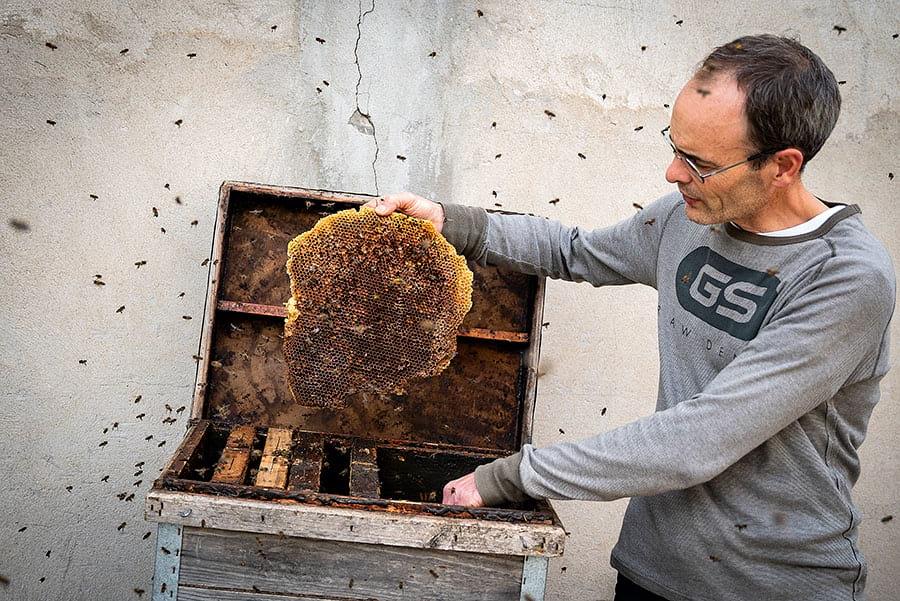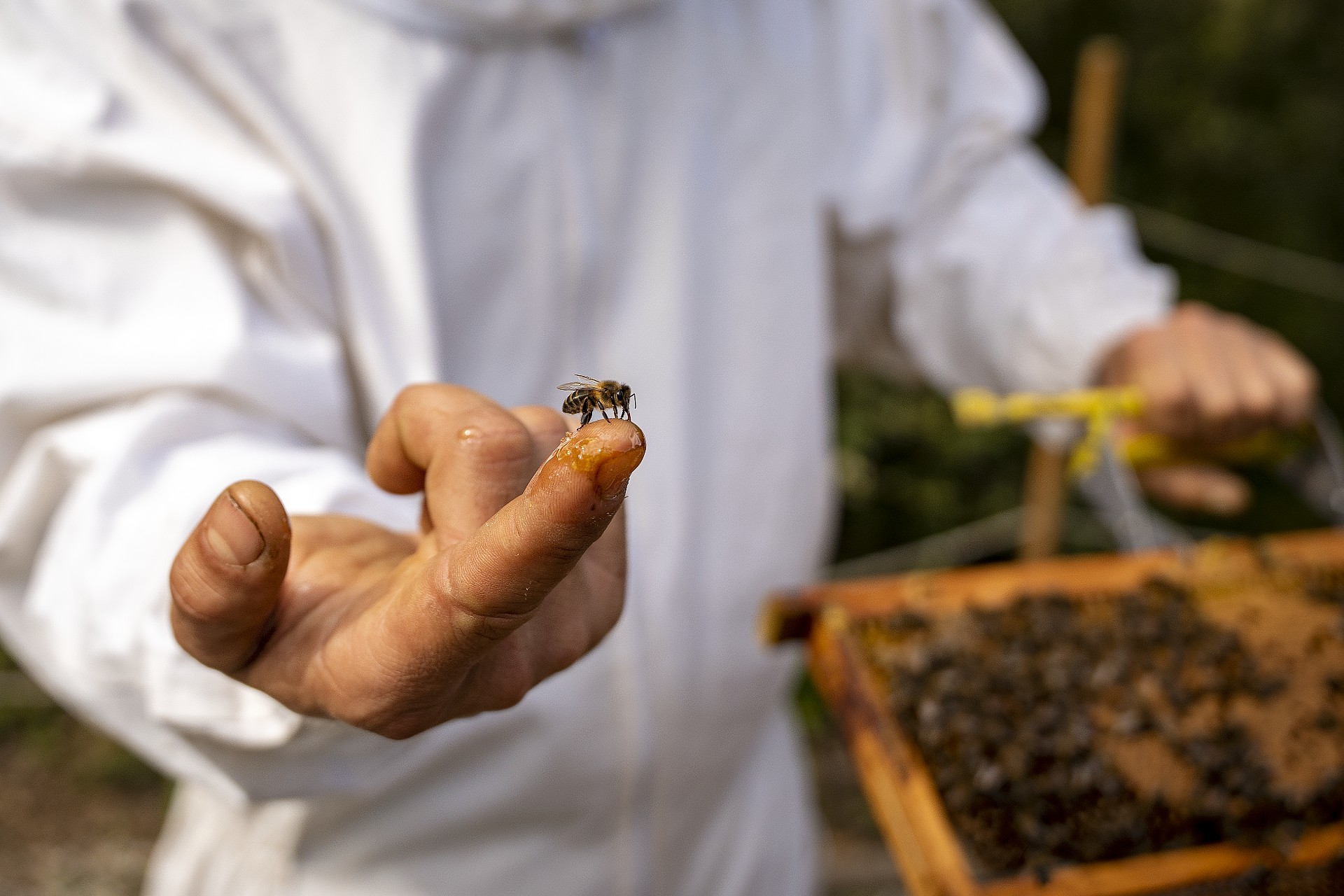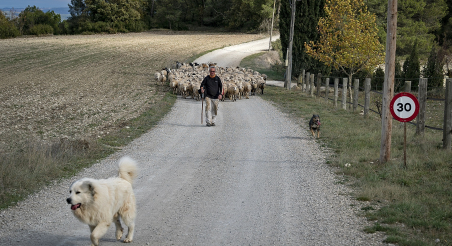In the province of Barcelona, there are currently 362 beekeeping operations, which account for 32% of honey producers in Catalonia.
On World Bee Day, we present three projects led by individuals who understand the value of bees and are dedicated to caring for these insects, which are essential for plant pollination and ecosystem preservation.
Èric Barbero, Melvida beekeeper

Eric Barbero, Melvida. PATXI URIZ | BARCELONA PROVINCIAL COUNCIL
Èric Barbero is the beekeeper behind Melvida, a sustainable beekeeping project located in the Sierra de Collserola. He grew up close to nature, between Floresta and Valldoreix, and the forest was always his favourite garden. As a child, he loved searching for asparagus, observing squirrels, and finding fireflies. When fireflies became scarce in summer nights, he decided to act to reverse the biodiversity crisis in his local environment.
He soon discovered the world of bees and was captivated by their crucial role in pollination and nature preservation. Without hesitation, he left his career as a physiotherapist to become a beekeeper. Today, he organises courses, workshops, apiary visits, and tastings, and sells high-quality artisanal honey directly.
Josep Ruaix, Delícia de Mel beekeeper

Josep Ruaix, Delícia de mel. PATXI URIZ | BARCELONA PROVINCIAL COUNCIL
Josep Ruaix is a passionate beekeeper who has been drawn to bees since he was young. His father, “Grandfather Manel,” collected delicate virgin honey from hives he built himself, which he packaged artisanally for family enjoyment. The memory of that honey's taste and watching his father work with bees fascinated Josep, who grew up with a deep curiosity for beekeeping.
Eight years ago, he embarked on the adventure of honey production and greatly appreciated the initial help from Mariano Castells, a third-generation beekeeper whom he considers the father of his bees. With an expert like him, learning is guaranteed, and despite the increasing difficulties largely caused by climate change, he is very proud of Delícia de mel, his small family-operated migratory beekeeping business.
Josep and his hives travel throughout Catalonia to make the most of the various blooms available and diversify the bees' diet. This practice contributes to the pollination of crops and wild plants and has positive effects on biodiversity. Additionally, it allows him to produce honey of exceptional quality and nutritional richness.
Josep Maria Oliva, Mas Buret beekeeper

Josep Maria Oliva, Mas Buret. PATXI URIZ | BARCELONA PROVINCIAL COUNCIL
At a farmhouse situated beneath the Tossa de Santa Margarita massif in Montbui, surrounded by olive trees, almond trees, loquats, apple trees, cherry trees, and pines, we find a beautiful and tranquil setting that seems to naturally reflect the serene and kind character of Josep Maria Oliva, the fourth generation of beekeepers at Mas Buret.
His father was the one who started the family-named business, although they had been keeping bees and producing honey for personal use before. Currently, they manage around 200 beehives located in different regions of Catalonia, moving them to ensure the bees have access to the best pollen and nectar. Their honey is artisanal from collection to packaging, and they avoid using any chemicals that might alter the quality. The honey mainly reaches local stores.
— BCN Smart Rural Editorial —






